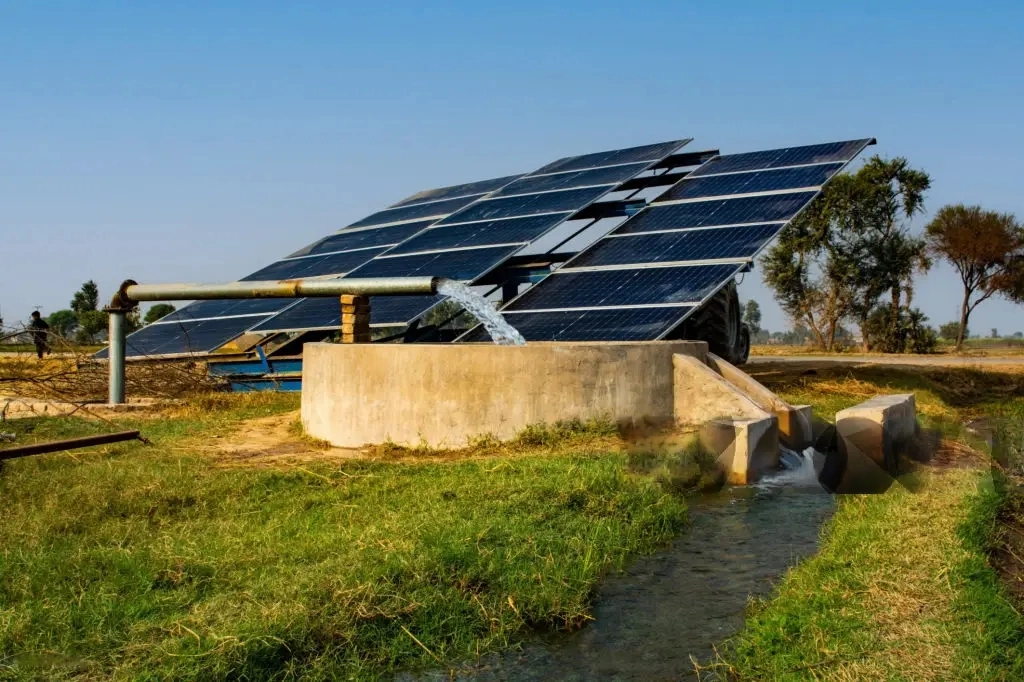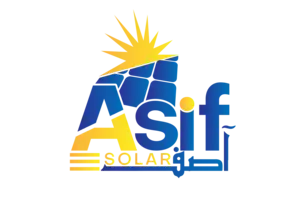
Irrigation has always been a cornerstone of agriculture, enabling farmers to grow crops consistently and meet global food demands. However, with rising energy costs, depleting water resources, and climate change concerns, traditional irrigation methods are becoming increasingly unsustainable. Enter solar irrigation—a transformative solution that combines renewable energy with efficient water management. Let’s explore what solar irrigation is, why it is essential, and the significant benefits it offers.
What is Solar Irrigation?
Solar irrigation is the process of using solar-powered systems to pump and distribute water for agricultural purposes. These systems typically consist of photovoltaic (PV) panels, which convert sunlight into electricity, a water pump, and sometimes storage facilities for energy or water. The generated energy powers the pump, which extracts water from sources like rivers, wells, or reservoirs and delivers it to the fields.
Why Do We Need Solar Irrigation?
-
Rising Energy Costs: Traditional irrigation systems often rely on diesel generators or electricity from the grid. Both options are costly and subject to price fluctuations. Solar power provides a free and consistent energy source, reducing the financial burden on farmers.
-
Energy Access in Remote Areas: Many agricultural regions lack reliable access to electricity. Solar irrigation can bridge this gap, empowering farmers in remote and underserved areas to access sustainable energy and water resources.
-
Environmental Concerns: Diesel-powered pumps emit greenhouse gases and contribute to air pollution. Switching to solar irrigation significantly reduces the carbon footprint of agricultural practices, aligning with global goals for environmental sustainability.
-
Water Scarcity: Efficient irrigation is critical in areas facing water scarcity. Solar-powered systems can be integrated with modern irrigation techniques, such as drip or sprinkler systems, to optimize water use and minimize wastage.
-
Climate Resilience: As climate change brings unpredictable weather patterns, farmers need reliable systems to ensure consistent water supply. Solar irrigation is a dependable solution that functions effectively even in extreme weather conditions.
Benefits of Solar Irrigation
1. Cost Savings
Although the initial investment in solar irrigation systems can be high, the long-term savings are substantial. Farmers save on fuel costs, grid electricity bills, and maintenance expenses associated with diesel pumps. Moreover, many governments and organizations offer subsidies and financing options to make these systems more affordable.
2. Energy Independence
Solar irrigation empowers farmers to become energy-independent. They are no longer at the mercy of erratic power supplies or volatile fuel markets. This autonomy enhances their productivity and economic stability.
3. Environmentally Friendly
Solar-powered systems produce zero emissions during operation, making them a clean and green alternative to conventional irrigation methods. By reducing reliance on fossil fuels, these systems contribute to mitigating climate change and preserving air quality.
4. Improved Agricultural Productivity
With a reliable water supply, farmers can irrigate their fields more efficiently, leading to increased crop yields and better-quality produce. This is especially critical in regions where erratic rainfall threatens food security.
5. Job Creation and Rural Development
The adoption of solar irrigation creates opportunities for local employment, from manufacturing and installation to maintenance and repair services. This fosters economic development in rural areas.
6. Scalability and Flexibility
Solar irrigation systems can be customized to suit various farm sizes and needs. Whether for smallholder farmers or large-scale agricultural operations, these systems can be scaled and adapted as required.
7. Sustainable Water Management
When paired with smart irrigation practices, solar irrigation promotes efficient water use. Farmers can monitor and control water distribution, ensuring that resources are conserved and utilized responsibly.
Challenges and Solutions
While solar irrigation offers numerous benefits, challenges such as high upfront costs, limited awareness, and technical expertise still exist. However, these hurdles can be overcome through:
- Subsidies and Incentives: Governments and NGOs can provide financial support to make solar irrigation systems more accessible.
- Training and Education: Equipping farmers with the knowledge and skills to operate and maintain these systems ensures their long-term success.
- Innovative Financing Models: Pay-as-you-go models and microloans can help small farmers afford the initial investment.
Conclusion
Solar irrigation represents a win-win solution for farmers, the environment, and society as a whole. By harnessing the power of the sun, we can transform agriculture into a sustainable and resilient sector, capable of feeding the world while safeguarding our planet. As more farmers adopt solar irrigation, we move closer to achieving food security, energy independence, and environmental sustainability. The future of farming is bright—and powered by the sun.
